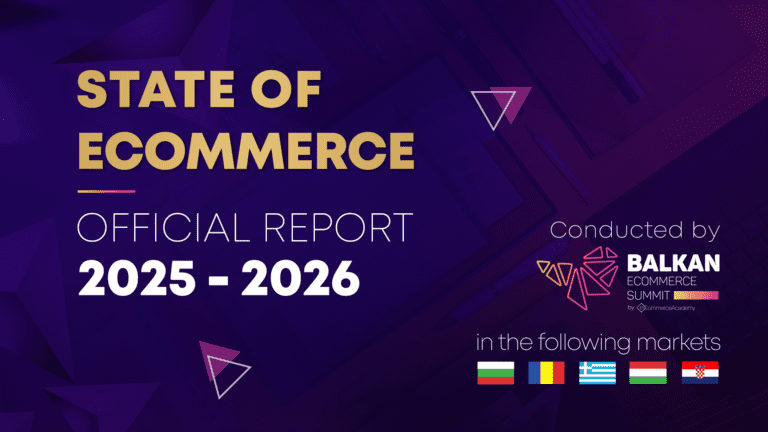How to improve your business reputation in the digital age
Business reputation is the social evaluation of the company, which is expressed in the opinions and reviews of customers, partners, employees and the media. She can be positive or negative, depending on the quality of the services or products offered and the way the company communicates with its customers.
What is online reputation management?
Online reputation management is a modern practice aimed at monitoring, controlling and maintaining the positive image of individuals, brands or organizations in the Internet space. In the digital age we live in, this task takes on even greater importance. The online platforms like social media and review sites, become the primary channels for shaping public opinion, making reputation management a critical element of any successful business strategy.
Why does reputation matter to business?
A business's reputation on the Internet can be critical to its success. Positive online opinion creates trust among customers, strengthens the image of the brand and leads to new customers, and conversely, negative reviews or a compromised reputation can lead to lost customers, reduced sales and serious damage to brand trust.
In the digital age, online research is an integral part of a consumer's purchasing decision, and unfavorable reviews or negative content can easily turn potential customers away. Proactive online reputation management ensures a more positive image and timely responses to negative feedback.
The benefits of effective reputation management:
- Building trust and reliability – Positive reviews and an active online presence signal trustworthiness and create a foundation for long-term customer relationships.
- More successful acquisition of new customers – A good reputation acts as a magnet for new customers, with referrals playing a key role in this process.
- Optimizing brand perception – Systematic reputation management helps businesses create and maintain a favorable brand image.
- Crisis management – A well-managed reputation ensures preparedness to deal with potential crises by minimizing the impact of negative publicity through adequate and timely responses.
Best practices for successful digital marketing
With the development of digital technologies and increasing competition, successful digital marketing requires the implementation of innovative and flexible strategies. Here are some best practices that can help your business stand out and achieve sustainable success online:
1. Artificial Intelligence (AI) Integration – Artificial intelligence can offer personalized recommendations, automated campaigns and deep analyzes of user behavior. Through AI, businesses can better understand their customers' needs and provide more relevant content and services. AI tools like chatbots and automated content creation increase efficiency and improve user experience.
2. Responsive web design and mobile optimization – Today, more and more users use mobile devices to access online content, so responsive design and mobile optimization are a key factor in the success of any business. A mobile-optimized site not only improves the user experience, but also has a positive impact on search engine rankings.
3. Personalization in marketing campaigns – Personalized campaigns are key to building a strong relationship with customers and increasing their engagement. Segmenting your audience and creating content that meets individual customer needs and interests leads to higher conversion and satisfaction.
4. Quality and relevance of content – Content remains a central part of any successful marketing strategy. It is important that the content is both high-quality and relevant to meet the audience's demands and needs. Informative articles, guides, blogs and visual content such as infographics provide value and build brand trust.
5. Video Digital Marketing – Video content has become one of the most powerful tools for reaching audiences. Short videos, stories and webinars increase user engagement and awareness. Platforms like YouTube, Instagram and TikTok allow brands to share creative and engaging content.
6. Building a connection with the audience - Successful digital marketing requires more than just selling products – it must create and maintain long-term relationships with customers. Regular communication, feedback and proactive interaction on social networks build trust and brand loyalty.
7. Measuring Digital Success – Analyzing the results of digital marketing efforts is critical to understanding what works best. Metrics such as engagement, conversion and customer retention rate provide clear insight into campaign performance and provide guidance for improvements.
8. Identifying the micro-moments – Micromoments are short moments when users are looking for answers, want to buy something, or are looking for inspiration. To take advantage of these moments, businesses need to be in the right place and time with the right message to keep customers' attention.
9. Multichannel Digital Marketing – Multichannel marketing involves using different platforms and channels to communicate with your audience, from social media and email campaigns to paid advertising and SEO. The combined approach allows for broader coverage and makes it easier to connect with customers at different stages of their buying journey.
Successful digital marketing and effective online reputation management are essential drivers for the long-term success of any business in today's dynamic digital environment. By adapting to new trends and implementing best practices—such as campaign personalization, mobile optimization, AI integration, and active audience engagement—businesses can not only attract new customers, but also maintain the loyalty of existing ones. Consistent use of these approaches will build trust, strengthen brand reputation, and provide a solid foundation for growth in a highly competitive environment.






